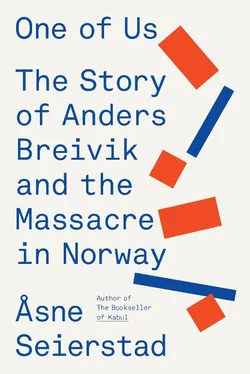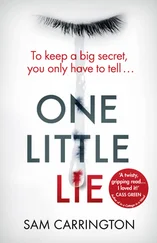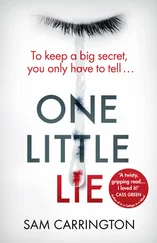At noon groups of AUF members were ferried over. Stoltenberg came, the Danish Prime Minister Helle Thorning-Schmidt came, the boss of the trade union confederation, Cabinet ministers, the left-wing Swedish singer Mikael Wiehe, the AUF leadership and lots of young people. They sat on the ground that sloped down to the open-air stage and listened to fine words about democracy and solidarity. The parents did not fit in there. There was a risk they might scream or shout, ruining the carefully choreographed event.
As part of the compromise deal the parents had been told they could return to the island after 5 p.m., because by then the AUF members would have gone off to the next item on their programme, the big memorial concert on the waterfront by the Town Hall. There was much excitement at the prospect that Bruce Springsteen was going to perform.
‘Sometimes I wonder what my lad was caught up in,’ said Gerd. ‘Would he have turned out like that too?’
The first Christmas, the Kristiansen family had received a pre-printed Christmas card from the Prime Minister. From the AUF leader, not a word. Then Jens Stoltenberg telephoned them on their first New Year’s Eve without Anders. On the second anniversary of the killings, the foreign minister Jonas Gahr Støre rang. He offered his condolences again the first time he passed through Troms after the massacre. Later they received a personal, handwritten letter from him, and a long letter from the vice-chair of the AUF, Åsmund Aukrust, who wrote of what Anders had meant to the youth organisation, how sad he was to lose him and how much he was missed.
The parents read those letters many times.
* * *
Grief is a solitary journey. Their great fear was that Anders would be forgotten.
It warmed their hearts when the Children’s Ombudsman sent them a DVD of pictures and recordings of Anders taken at the National Youth Parliament at Eidsvoll, where he had been a delegate, and the County Council sent them recordings of the speeches Anders had made there. But the best thing of all was when Viljar visited. Then it was as if Anders was just about to step through the door.
What made them so bitter was the sense that nobody was taking any real responsibility for what had happened. At about the same time, a bus driver in the district stood accused of involuntary manslaughter because he had been inattentive for a moment, lost control of the vehicle and three people were killed. ‘Is it that if you’re far enough down the ladder, you get charged?’ asked Viggo.
Questions went churning round in their heads.
Could one say that the police were inattentive on 22 July? Could one say that the authorities were inattentive beforehand? Could one say it was irresponsible that the crew of Norway’s sole police helicopter were all on leave for the whole of July? Could one say that individual police officers had not followed the instructions for a ‘shooting in progress’ situation, indicating that direct intervention was required? Should anyone be charged with negligence ?
Viggo could answer ‘yes’ to all those questions. He was angry when Stoltenberg said, I take responsibility . While not accepting the consequence of the errors by resigning. Events had exposed the fact that Norway had a police leadership which was paralysed in a crisis. The system had failed. Seventy-seven people had been killed. Was no one to be charged with anything?
Well yes, the perpetrator was under lock and key, and Viggo wished him all possible ill. He should have been sentenced to seventy-seven times twenty-one years in prison. But beyond that:
What responsibility did the AUF take for the children and young people on the island?
What security assessments had the AUF leadership made after the bomb in Oslo?
Were there evacuation plans?
Was there an emergency plan?
Was the MS Thorbjørn to be used in case of an evacuation of the island?
The AUF had not subsequently provided any answer to these questions. Viggo received no answers. The only thing he heard was that they were going to ‘reclaim Utøya’.
A year after the killings, the AUF presented sketches, done by a firm of architects called Fantastic Norway. The pictures showed happy, computer-generated young people round the new buildings; a central clock tower; bright, attractive modern structures. Many of the bereaved felt the plans had been drawn up too soon. Their grief was still all-consuming. Is the building where my daughter died going to be torn down? Are young people going to take romantic walks round Lovers’ Path where so many were slaughtered? Will they sunbathe on the rocks where youngsters bled to death?
Many of the bereaved protested about the plans that had been announced. The AUF leader responded: ‘When it comes down to it, I think it has to be left to the AUF to decide this question.’
‘Is that how an AUF leader should talk?’ asked Viggo.
‘Well, perhaps it is,’ was Gerd’s laconic reply. ‘Perhaps the AUF has always been like that.’
They felt they had never properly understood what Anders was involved in. Who were these people? Former AUF leaders had gone on climbing, almost without exception. They had been lifted up into the machinery of power. They had been picked up as political advisers, state secretaries, been given jobs in the administration of government.
But for the organisation to be so ruthless towards those who were grieving, no, they had not imagined that. ‘It’s as if they want me to say: Hallelujah! My son was in the AUF,’ sighed Gerd. ‘The one thing I can say is that Norway didn’t take care of Anders, and that the country isn’t taking care of us now. Taking care of also means not forgetting.’
* * *
Viggo went out. He had something to do.
It was time to paint Anders’s hut in the garden. It had been standing there untouched, just as Anders left it. His films were on the shelf. His jacket was hanging inside the door. Viggo had got hold of the right blue-green colour that Anders had once chosen.
His son had talked about painting the door, but he had never found time between all those meetings and trips back and forth to Tromsø. It needed a new coat now. Viggo had to keep at least something in order when everything else was falling apart around them. Grieving was heavy work.
Viggo could not get used to it, could not accept that Anders would never leap off the school bus again, that he would never again come walking up the path. That the school bus existed, the path existed, but Anders did not.
It was not only questions to the state apparatus, the police and the AUF that were churning round inside Viggo’s head. He also had some questions for his son.
Why did you lie down on the path?
Why didn’t you run?
What were you thinking, just before he fired?
Did it hurt?
He gave the hut one coat, the door two. He left the door open to dry.
‘Think how pleased Anders would have been to see it looking so nice,’ he said to Gerd when he came in.
They always went up to Anders’s room when evening came. They always put his light on when it got dark.
When it was time for bed they looked in to say good night, sleep well and turned off the lights.
Gerd kept the room in order. That is to say, she did not tidy or move things, she just made sure it did not get too dusty. Stian liked wearing his younger brother’s clothes when he was home on holiday. Some of Anders’s friends had also picked out items of clothing, as reminders of him.
When Anders went to Utøya there was a brand-new suit hanging in his wardrobe. Gerd and Anders had gone shopping in Tromsø because the eighteen-year-old had wanted a proper suit. His first dark, grown-up suit. He wanted to see what they had at Moods of Norway. There, he tried on the finest suit he could find. Gerd had never seen him stand so tall and look so handsome.
Читать дальше












